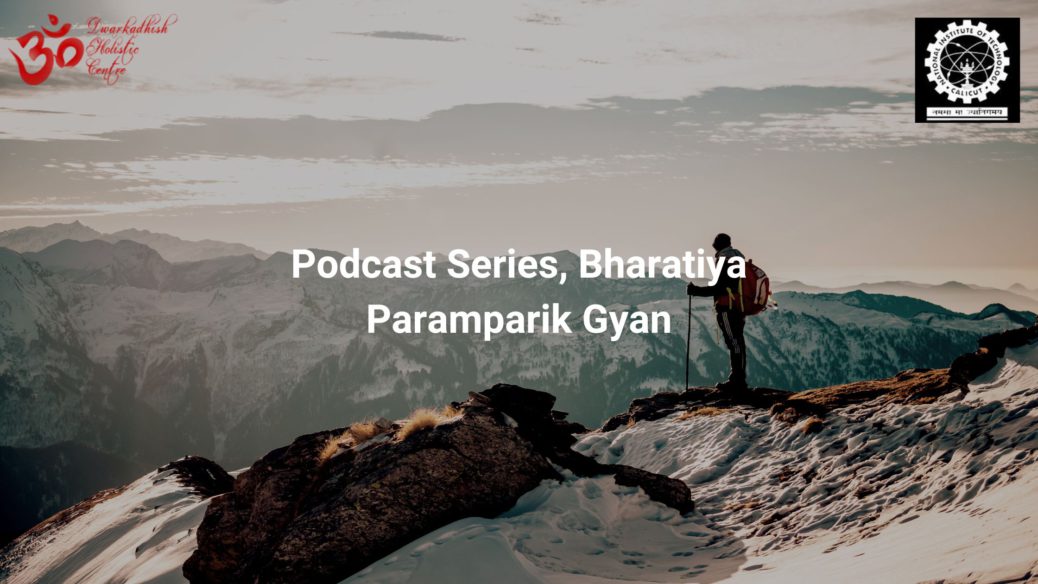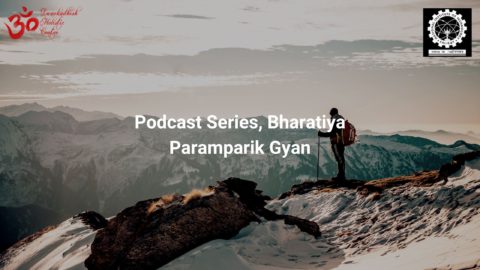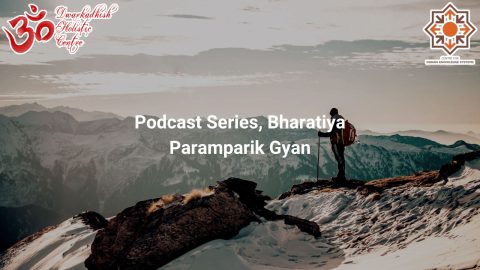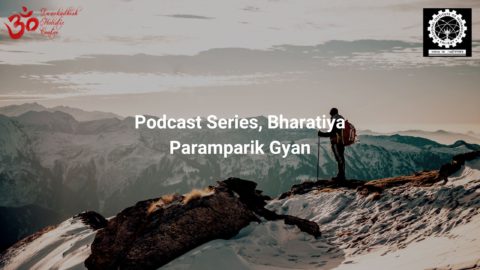Bhartiya Paramparik Gyan
Introduction
We are honoured to welcome Dr. Uday Shanker Dixit, a distinguished academic and visionary in the field of Mechanical Engineering, as our esteemed guest on the “Bhartiya Paramparik Gyan” podcast series. With a foundation rooted in excellence and a career marked by relentless pursuit of knowledge, Dr. Dixit’s journey epitomises a harmonious blend of research, teaching, and innovation.
Having garnered accolades and awards for his exemplary contributions to academia, Dr. Dixit’s expertise extends to areas such as finite element method applications and soft computing in manufacturing, resonating perfectly with the theme of traditional Indian knowledge systems. As we delve into the captivating realms of “Bhartiya Paramparik Gyan” on our podcast, presented by Dwarkadhish Holistic Centre in collaboration with Centre for Indian Knowledge Systems, at NIT Calicut, Dr. Dixit’s insights are poised to illuminate the profound wisdom embedded within our cultural heritage.
Guided by the insightful questions of our host, Dhwani Shah, this episode promises to be a riveting exploration into the intersection of modern engineering principles and ancient Indian wisdom under the adept guidance of Dr. Uday Dixit.
Topic Covered:
- Can you tell us more about your journey in mechanical engineering and mechatronics over the past three decades?
- How has your academic background from the University of Roorkee and IIT Kanpur shaped your perspectives in the field?
- What motivated your transition from HMT Ltd. to IIT Guwahati, and how has this influenced your expertise in finite element methodologies and soft computing applications?
- Congratulations on receiving accolades like the Best Paper and Best Teacher awards. Could you share some insights into the contributions that led to these recognitions?
- Could you elaborate on the importance of integrating Indian Knowledge Systems into educational curricula as per the NEP2020 guidelines?
- In what ways do you envision the evolution of manufacturing technologies and their impact on engineering practices?
- How do you perceive the significance of mechatronics in enhancing modern engineering approaches?
- What are some key challenges you foresee in incorporating Indian Knowledge Systems into mainstream educational frameworks?
- How can universities and institutions effectively collaborate to ensure a seamless integration of NEP2020 principles in curricula?
- Finally, could you provide us with your visionary perspective on the future of mechanical engineering education and research, considering the changing landscape and advancements in the field?







